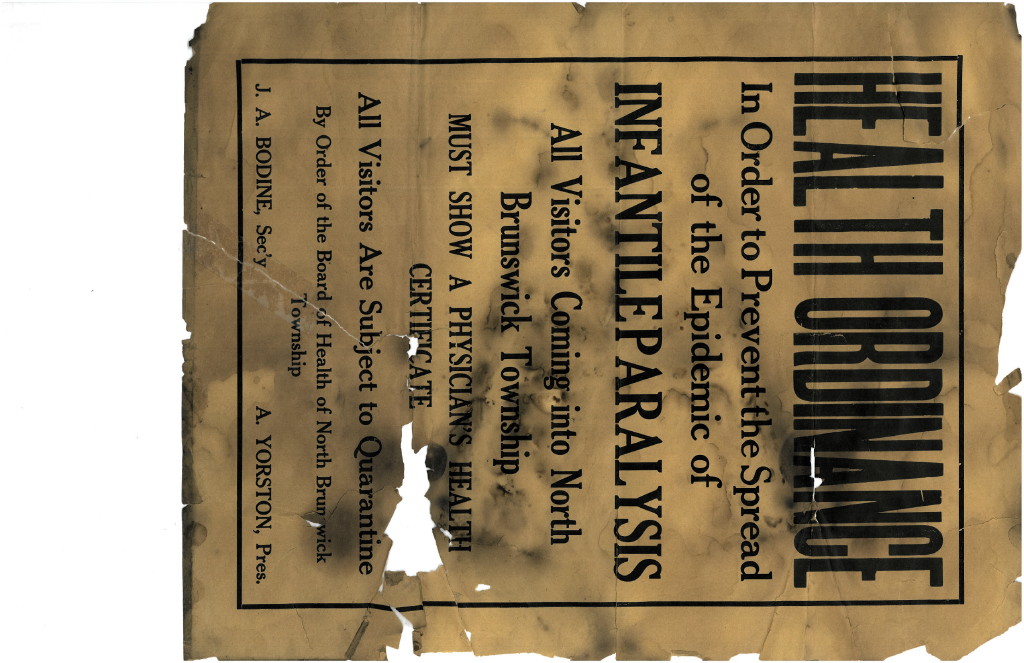NORTH BRUNSWICK – A flier that was recently donated to the North Brunswick Historical Society announces a quarantine in the township due to infantile paralysis circa 1916 in the New York area.
The 12-inch by 15-inch document was discovered among the papers of an elderly resident who passed away, according to Michael Hritz, director of the North Brunswick Department of Community Development and president of the North Brunswick Historical Society.
Hritz made remarks about the document during the Nov. 30 Township Council meeting when the paper was presented.
It is believed the infantile paralysis was associated with a polio outbreak that had occurred years earlier.
“All visitors coming into North Brunswick Township must show a physician’s health certificate by order of the Board of Health of the Township of North Brunswick,” the flier states.
The health ordinance was signed by Alfred Yorston, president of the Board of Health.
The intersection of Route 1 and Route 130 was the location of the 20-acre farm of Charles and Mary Yorston, the parents of Alfred Yorston, a well-known mortician and cemetery superintendent who died in 1958, according to information provided by Hritz.
Alfred Yorston is best remembered for his work in removing 520 bodies from the New Brunswick Presbyterian Church’s cemetery to Van Liew Cemetery in North Brunswick to make way for new construction; for his around-the-clock service during the 1918 deadly influenza epidemic; and for his service in connection with the autopsy involving the infamous Hall-Mills murder in Franklin Township, according to the information.
In the late 1930s, the Yorstons sold 8 acres to the state for the construction of the superhighway and a new traffic circle.
Alfred and his wife Evelyn then built a new house to take the place of their razed homestead. The house was later renovated as an antiques shop and then moved onto stilts in an adjacent equipment yard in the mid-1970s to make way for a modern office building, according to the information.
“It’s possible health certificates would have been checked near their home, where we know there was actually a toll gate near the present-day Shoppes entrance. Those traveling by horse and carriage were required to pay a fare when passing through the township,” Hritz said.
Alfred Yorston was a chairman of the Township Committee. At one point, the Township Committee suggested the circle be named in the Yorstons’ honor, but no action was ever taken, Hritz said.

